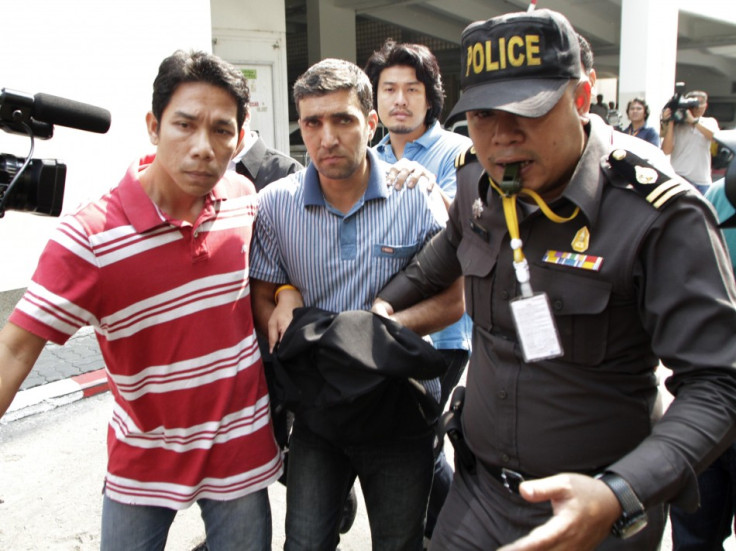Bangkok Blasts: Israel Warns of More Attacks, Two More Suspects and Bomb Expert on the Loose

The investigations into the blasts that rattled Bangkok on Feb. 14 have taken an interesting, if slightly sordid twist.
The blasts in question refer to a series of three attacks that occurred just off a main street in Thailand's capital city. The first two attacks, which occurred at 9.11 a.m. GMT, were followed by a third explosion at the house of a group of people believed to be Iranian nationals.
In an earlier IBTimes UK report, it was revealed that the Bangkok police had, apart from the suspected Iranian national, Saeid Morabi (found with severe injuries to both his legs, at the scene of the blasts, after a failed bombing attempt), held a second man - Mohummad Hazaei (also spelt Mohammad Khazaei) - caught at the city's airport while trying to flee the country. A third suspect, also believed to be an Iranian, was identified as a Masoud Zedhaghat Zadech (also spelt Masoud Sedaghat Zadeh) and detained in Malaysia, according to a Bangkok Post report.
The most recent developments, according to a Fox News report, is that the police have suggested there may be a further two suspects on the loose, including a potential explosives specialist. Additionally, a Telegraph report quotes senior Israeli officials as saying Iran will use its close ties to the Hizbollah (the radical Shia movement based in south Lebanon) to conduct overseas terrorist attacks. Apparently, the stated aim is retaliation for what they believe was the assassination of five Iranian nuclear scientists and the head of the country's ballistic missile programme.
Tehran has publicly blamed Mossad, Israel's external intelligence agency, for these incidents.
Meanwhile, as the police continue to back-track the alleged bombers, they have now learnt that they spent at least two days, possibly more (between Feb. 8 and Feb. 13) in the city of Phuket. The city, some 45 miles southeast of Bangkok, is notorious for the numbers of prostitutes and a thriving sex industry.
The suspects' stay in Phuket has come as a blessing for the investigation. Apparently, one of the prostitutes the Iranians hired has helped in identifying them.
A Wall Street Journal report, along with several others including this from AP, has confirmed the suspects hired several prostitutes. According to AP, Lt. Gen. Noppon Kuldiloke, a senior immigration police investigator in southern Thailand, confirmed that one of the women had been brought to Bangkok to help with the investigation.
Apparently the woman, identified in the Bangkok Post as Nan, took a photograph of the suspects partying, on her mobile phone.
Finally, in another Fox News report, Lt. Gen. Winai Thongsong, Bangkok's Police Commissioner, said the suspected explosives expert - Javad Nikkhahfard, 52 - was seen on security camera footage, repeatedly entering and leaving the same house the Iranians were reportedly staying in. One woman, Leila Rohani, is believed to have escaped to Iran.
Details on Bomb Used
Meanwhile, a Jerusalem Post report quoted Peerapong Damapong, a Commander of the Police Forensic Unit, as saying the bombs were similar to the ones used in India and unlike anything Thailand has seen.
"It's one of those transistor radios that you can carry around, but the insides have been taken out and replaced with C-4, with the head of the bomb consisting of a bolt, a pin and a detonator attached to it," he said. C4, a plastic explosive, is used primarily by the military but is relatively easy to purchase in Thailand.
Must Read:
Bangkok Blasts: Bomber Identified, Iranian Connection suspected [PHOTOS]
Bangkok Blasts: Thai Officials Suggest Strong Link to India Attack
© Copyright IBTimes 2025. All rights reserved.





















